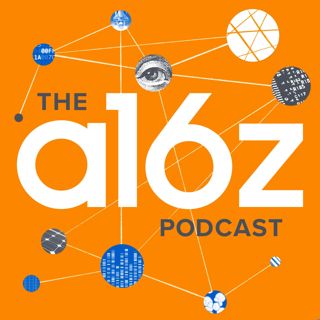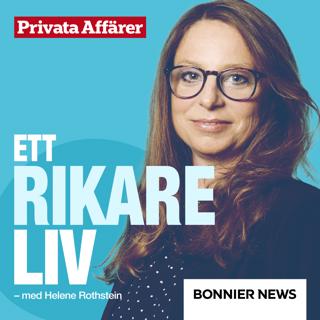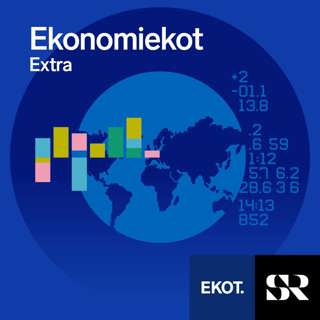
a16z Podcast: Drones for Delivery in Healthcare
“If we have instant delivery for our burgers,” says Zipline CEO and co-founder Keller Rinaudo, “we should have it for our medicine.” So while some people debate whether drone delivery for burritos, beers, and books is a marketing gimmick, one of the most important kinds -- urgent delivery of urgent healthcare -- is happening right now through Zipline’s delivering blood and vaccines to patients and hospitals in Rwanda. The peace dividend of the smartphone (and electric vehicle) wars has yielded components and cost dynamics that make all this possible. But more importantly, the economics -- bypassing motorcycles and going 20x as fast -- are actually profitable, as drones can help leapfrog existing (or lacking) road infrastructure. "It’s trade, not aid" ... especially as this approach also builds out commercial infrastructure in Africa. In this episode of the a16z Podcast (in conversation with Chris Dixon and recorded at our recent inaugural a16z Summit), Rinaudo and UPS' Vice President of Healthcare Strategy John Menna discuss using drones to leapfrog infrastructure, and save lives by doing it in less than 15 minutes. But how are regulation and locals responding? What does the trend towards “light and fast” logistics -- based on smaller inventory in a number of controlled-environment yet centrally managed locations -- look like? And finally, how can drones for healthcare delivery further the trend of personalized medicine? The views expressed here are those of the individual AH Capital Management, L.L.C. (“a16z”) personnel quoted and are not the views of a16z or its affiliates. Certain information contained in here has been obtained from third-party sources, including from portfolio companies of funds managed by a16z. While taken from sources believed to be reliable, a16z has not independently verified such information and makes no representations about the enduring accuracy of the information or its appropriateness for a given situation. This content is provided for informational purposes only, and should not be relied upon as legal, business, investment, or tax advice. You should consult your own advisers as to those matters. References to any securities or digital assets are for illustrative purposes only, and do not constitute an investment recommendation or offer to provide investment advisory services. Furthermore, this content is not directed at nor intended for use by any investors or prospective investors, and may not under any circumstances be relied upon when making a decision to invest in any fund managed by a16z. (An offering to invest in an a16z fund will be made only by the private placement memorandum, subscription agreement, and other relevant documentation of any such fund and should be read in their entirety.) Any investments or portfolio companies mentioned, referred to, or described are not representative of all investments in vehicles managed by a16z, and there can be no assurance that the investments will be profitable or that other investments made in the future will have similar characteristics or results. A list of investments made by funds managed by Andreessen Horowitz (excluding investments and certain publicly traded cryptocurrencies/ digital assets for which the issuer has not provided permission for a16z to disclose publicly) is available at https://a16z.com/investments/. Charts and graphs provided within are for informational purposes solely and should not be relied upon when making any investment decision. Past performance is not indicative of future results. The content speaks only as of the date indicated. Any projections, estimates, forecasts, targets, prospects, and/or opinions expressed in these materials are subject to change without notice and may differ or be contrary to opinions expressed by others. Please see https://a16z.com/disclosures for additional important information.
23 Nov 201621min

a16z Podcast: Old Food, New Tech -- 'Clean Meat'
You’ve heard the numbers or some statistic like this: By the year 2050, we’ll need to feed 9.7 billion humans on the planet. Our current production and meat-making methods -- growing crops to feed to animals to turn them into food -- can’t keep up … not to mention it’s not very good for the environment. Yet meat is at the center of the plate for most meals, for most people. So how do we go from where we are to where we need to be? Especially since food is fundamentally an emotional experience! You can’t browbeat consumers into doing the "right" thing by selling on the rational benefits. You have to make them taste it … and crave it. In this episode of the a16z Podcast (continuing our annual Thanksgiving and ongoing food x tech series) Uma Valeti, CEO of Memphis Meats; David Lee, COO of Impossible Foods; and Bruce Friedrich, Executive Director of The Good Food Institute discuss -- in conversation with a16z partner Kyle Russell -- different methods of making meatless meats or “clean meats”. More broadly, we’re beginning to see a new era of food, and with it, radical transparency around understanding where our food comes from and how it’s made … something most people currently don’t know (or don’t want to know). From making to marketing, what will it take to turn the world's oldest food production tradition into an entirely new one? Could a personalized, local “meat brewery” be the future of food?
23 Nov 201625min

a16z Podcast: The Business of Creativity -- Pixar CFO, IPO, and Beyond!
You've heard a version of this story before: Steve Jobs calls some executive out of the blue to come work for him. Only this time the story turns out great ... and the company wasn't Apple. This episode of the a16z Podcast shares some of the journey that former CFO Lawrence Levy went on with Steve Jobs as they took Pixar -- a company then on the verge of failure -- to its IPO and subsequent greatest hits. It's sort of an adventure story but is really more of a quest for product-market fit. How did they figure out a model for such an old-but-new business (i.e., animation and entertainment)? How did they take an improbable plan and figure out how to make it work -- both qualitatively and quantitatively? How did they then navigate and straddle the diverse worlds of Silicon Valley, Hollywood, and Wall Street? And finally, how did they price their IPO, which was also a symbol of Steve Jobs' comeback story ... a narrative that's sometimes lost in the Apple story. From the business of creativity to corporate culture, Levy -- former CFO of Pixar, board member, and author of the new book To Pixar and Beyond: My Unlikely Journey with Steve Jobs to Make Entertainment History -- shares his (and Jobs' untold) story. But it isn't just a story about finding the right model and numbers to build, explain, and measure the business; it's also, partly, about how to get the measure of one's humanity, too.
9 Nov 201629min

a16z Podcast: What's Next for Technology and National Security?
We live in very interesting times, to say the least -- whether it's a shift in how technology is built and adopted today compared to the past; a changing international landscape with leapfrogging players; or an increased cyberattack surface as computing and networking touch everything. So what's next for technology and national security? This episode of the a16z Podcast is based on a conversation that took place last month between Marc Andreessen and Michèle Flournoy -- former Under Secretary of Defense for Policy and co-founder of the Center for a New American Security -- moderated by Matt Spence, partner on the a16z Policy and Regulatory Affairs team (and a former Deputy Assistant Secretary of Defense). It covers everything from technology procurement and the tyranny of the inbox, to the politics of industrial policy and ethics debates around use-cases for new technologies. But... do we really want innovation, not just in the abstract but in the specifics? If so, how do we think about the future? And how can both policymakers and technologists work together in different ways to help the U.S. keep its competitive edge and "give the future a seat at the table"?
9 Nov 201634min

a16z Podcast: Messages and Movements in Politics AND Business
In business, as in politics, "the movement is the message" -- whether that "movement" is a product that's taking off grassroots-style in an enterprise, or is a political candidate. In fact, you can think of political campaigns in general as a lot like startups ... only there's no second place in politics! And you can definitely think of business -- and in particular go-to-market strategy -- as a lot like political campaigns: in allocating marketing resources, going up against incumbents, and much more. Ultimately, it all comes down to the message -- setting the criteria and narrative as tailored for different "buyer" personas, from developers/users/CxOs to the voters you have to persuade. But how do you tell a message is working? With such complex, coordinated efforts behind a visionary product or person, is there room for instinct in message development and discipline? And where does the competition come in? They're laying traps for sure, and while that's obvious in politics it may not be so obvious in business. So pay attention to political campaigns as a way to think about go-to-market business principles, argues a16z's Mark Cranney, with longtime political operator Todd Cranney (who is also his brother!) on this episode of the a16z Podcast, another one of our "hallway conversations". The views expressed here are those of the individual AH Capital Management, L.L.C. (“a16z”) personnel quoted and are not the views of a16z or its affiliates. Certain information contained in here has been obtained from third-party sources, including from portfolio companies of funds managed by a16z. While taken from sources believed to be reliable, a16z has not independently verified such information and makes no representations about the enduring accuracy of the information or its appropriateness for a given situation. This content is provided for informational purposes only, and should not be relied upon as legal, business, investment, or tax advice. You should consult your own advisers as to those matters. References to any securities or digital assets are for illustrative purposes only, and do not constitute an investment recommendation or offer to provide investment advisory services. Furthermore, this content is not directed at nor intended for use by any investors or prospective investors, and may not under any circumstances be relied upon when making a decision to invest in any fund managed by a16z. (An offering to invest in an a16z fund will be made only by the private placement memorandum, subscription agreement, and other relevant documentation of any such fund and should be read in their entirety.) Any investments or portfolio companies mentioned, referred to, or described are not representative of all investments in vehicles managed by a16z, and there can be no assurance that the investments will be profitable or that other investments made in the future will have similar characteristics or results. A list of investments made by funds managed by Andreessen Horowitz (excluding investments and certain publicly traded cryptocurrencies/ digital assets for which the issuer has not provided permission for a16z to disclose publicly) is available at https://a16z.com/investments/. Charts and graphs provided within are for informational purposes solely and should not be relied upon when making any investment decision. Past performance is not indicative of future results. The content speaks only as of the date indicated. Any projections, estimates, forecasts, targets, prospects, and/or opinions expressed in these materials are subject to change without notice and may differ or be contrary to opinions expressed by others. Please see https://a16z.com/disclosures for additional important information.
3 Nov 201627min

a16z Podcast: So Where Are We on the 'S-curve' for PC Devices?
There have been a number of new device announcements this past month -- from Google’s new Pixel phone (the first time they made their own phone on the hardware side as well) to more recently, Apple’s announcements around a new Macbook Pro and innovations in touch (including a Touchbar that replaces function keys and bringing TouchID to Macs); and then Microsoft, which among other things announced a new Surface Studio -- an all-in-one touchscreen desktop PC. How do these change the future of work? Turns out, even seemingly small interface improvements could have significant consequences for user behavior. Just look at touch. More broadly, though, what happens when a software maker becomes a hardware maker? Or when we're in the middle of an architecture shift, as we are right now with x86 to ARM processors in mobile (and beyond)? It's all about where you're at on the "S-curve" of innovation (a concept first coined by Gabriel Tarde and expanded on Everett Rogers in his theory of innovation diffusion). And sometimes, the best is the last... But how can we tell where something is on that curve? The right comparisons matter here, and a16z's Benedict Evans and board partner Steven Sinofsky try to make them in this episode of the podcast!
29 Okt 201633min

a16z Podcast: On the Genomics of Disease, From Science to Business
Once we sequenced the human genome, we'd know the cause of -- and therefore be able to help cure -- all diseases... Or so we thought. Turns out, 20,000 genes (and counting) didn't really explain why disease occurred. Sure, some could be explained by mutations in a single genome, but most, like cancer, are too damn complex. And while the focused, singular approach to understanding disease did yield some useful therapeutics, it's now reached its limits. It hasn't helped much on the diagnostics (and early detection) front, either. That's where a systems approach to bio comes in, drawing on machine learning techniques as well as a sort of "Moore's Law" for genomics that's driving costs down, and fast. We're now focusing on the 99% of the genome that hasn't really been understood yet in terms of how they affect the human body and disease. But what will it take for such an approach to succeed? For one thing, it involves building an applications layer on top of the sequencing layer -- so can we borrow lessons from how the computing industry (from chips to apps) evolved here? What are some of the constraints unique to the healthcare system? In this episode of the a16z Podcast, Freenome CEO and co-founder Gabriel Otte and a16z bio fund partners Vijay Pande and Malinka Walaliyadde (in conversation with Sonal Chokshi) talk all things genomics and disease from science to business, also covering recent news like Illumina to what's next beyond human genomics to future trends. Including what the ultimate, Elysium-like magical diagnostic machine is (hint: the magical is mundane!).
18 Okt 201630min

a16z Podcast: Stickers! Filters! Memes! Livestreams!
From glittery reaction gifs modded by grandparents to rage faces on Reddit, stickers (gifs and other layered images) and emotive “biaoqing” have taken over messaging culture in China and beyond. Stickers are tied to filter culture, too — whether originating in real life as purikura photo sticker booths in Japan or digitally as Snapchat filters. Why are these forms of social communication so popular? Because sometimes you just want to say “I feel totally Nicki Minaj side-eye dot-GIF about this”, and no one can give a side-eye as good as Nicki Minaj can. But it’s not just about isolated expressions, celebrity stickers like Kimoji, or personalized bitmoji; stickers are shaping and codifying the way people talk to each other online in new and multi-layered ways. It’s even connected to mobile livestreaming, a phenomenon that’s taking off in China right now, in the most mundane (food eating streams) to subversive (seductive banana eating streams) ways. And how are all these memes tied to monetization and payments? In this episode of the a16z Podcast, ROFLCon co-founder and human-centered researcher/writer Christina Xu and Connie Chan in conversation with Sonal Chokshi take us on a wild tour of cultural messaging memes and messaging tech in China and beyond.
12 Okt 201647min






















